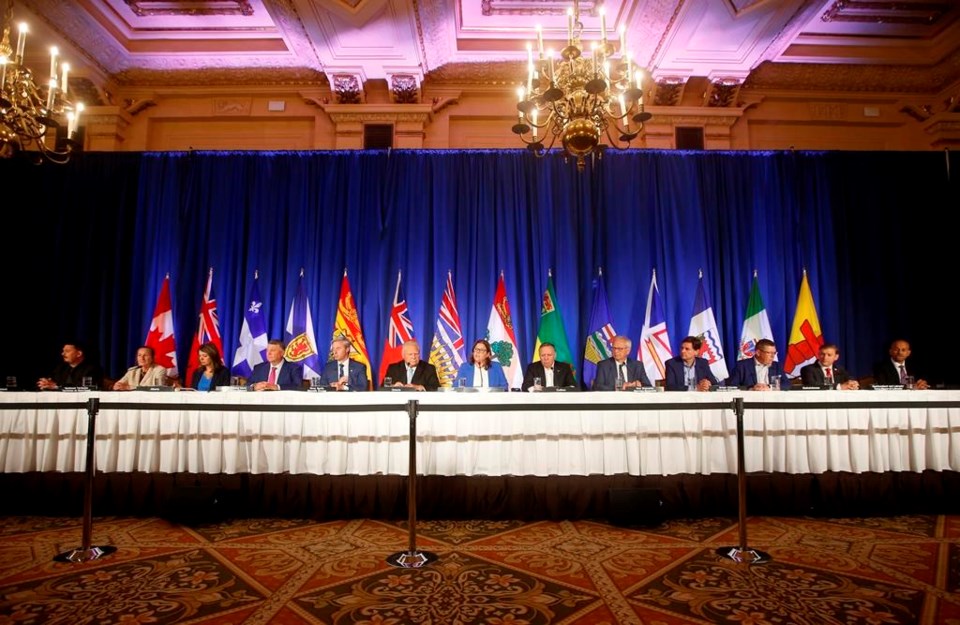WINNIPEG — Canada's premiers ended their annual three-day conference Wednesday with a call for a meeting with Prime Minister Justin Trudeau on infrastructure needs ranging from highways to housing.
"Having a national strategy around infrastructure that includes things like community infrastructure, as well as those pieces we traditionally think of — the highways, the ports, the railways — is so important," British Columbia Premier David Eby said.
"The provinces, we can (only) get so far on our own without the federal partner at the table."
At the same time, the premiers cautioned that any federal action on the issue should leave the provinces flexibility to address their different priorities.
"True federal partnerships are needed to … recognize all of our unique circumstances and needs," Manitoba's Heather Stefanson, chair of the premiers' group, said.
The premiers have been pushing for more information on what will replace the $33-billion Investing in Canada Infrastructure program, which ended in March, amid increasing pressures caused by inflation and supply chain issues.
Federal Infrastructure Minister Dominic LeBlanc said last month details on a next generation of funding programs are to be announced in the fall.
The premiers said other key infrastructure priorities include economic trade corridors.
"That last 50 or 100 miles into the Port of Vancouver, for instance, does require investment," Saskatchewan Premier Scott Moe said.
The premiers also raised issues of competitiveness and measures to fight climate change.
The United States government is offering funding to help the transition to green energy under a law passed last year, but Alberta Premier Danielle Smith said it's a different story in Canada.
"The problem with the federal approach is it's all stick and no carrot," Smith said.
"We can meet green energy standards, we can meet emissions targets, but we have to have growing economies."
The Atlantic provinces in particular raised concerns about incoming clean-fuel regulations, asking Ottawa to offset some of the costs to consumers.
"Certainly we all want to do our part," Newfoundland and Labrador Premier Andrew Furey said. "This is a question of fairness and all of us doing our equal part."
The premiers also reiterated concerns about the bail system. They have asked Ottawa to follow through on passing legislation to make it harder for repeat violent offenders to be released on bail.
The premiers met with representatives of the Canadian Association of Chiefs of Police, which urged the federal government to pass the required bill when Parliament reconvenes in September.
— with files from Jeremy Simes in Regina
This report by The Canadian Press was first published July 12, 2023.
Steve Lambert, The Canadian Press

